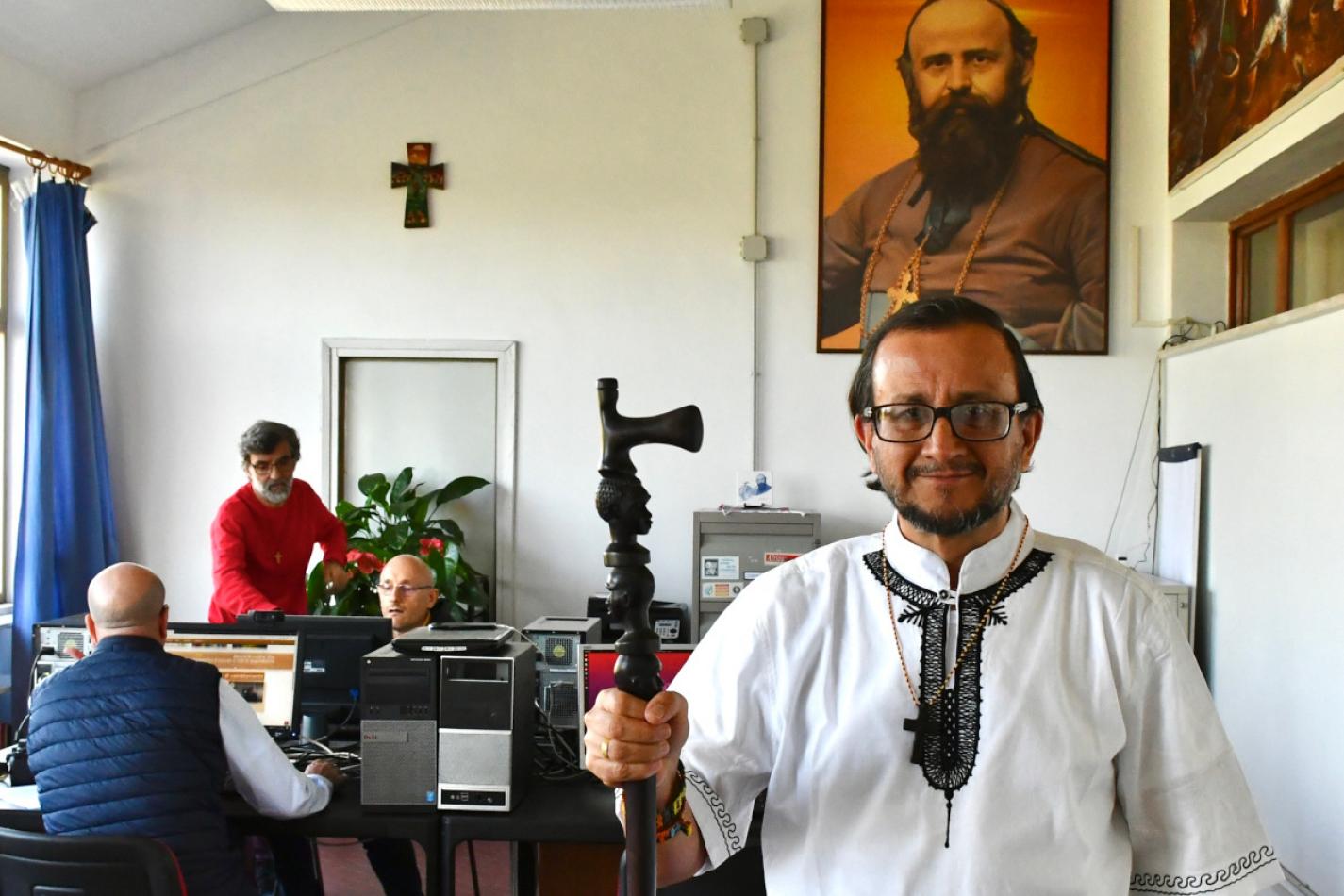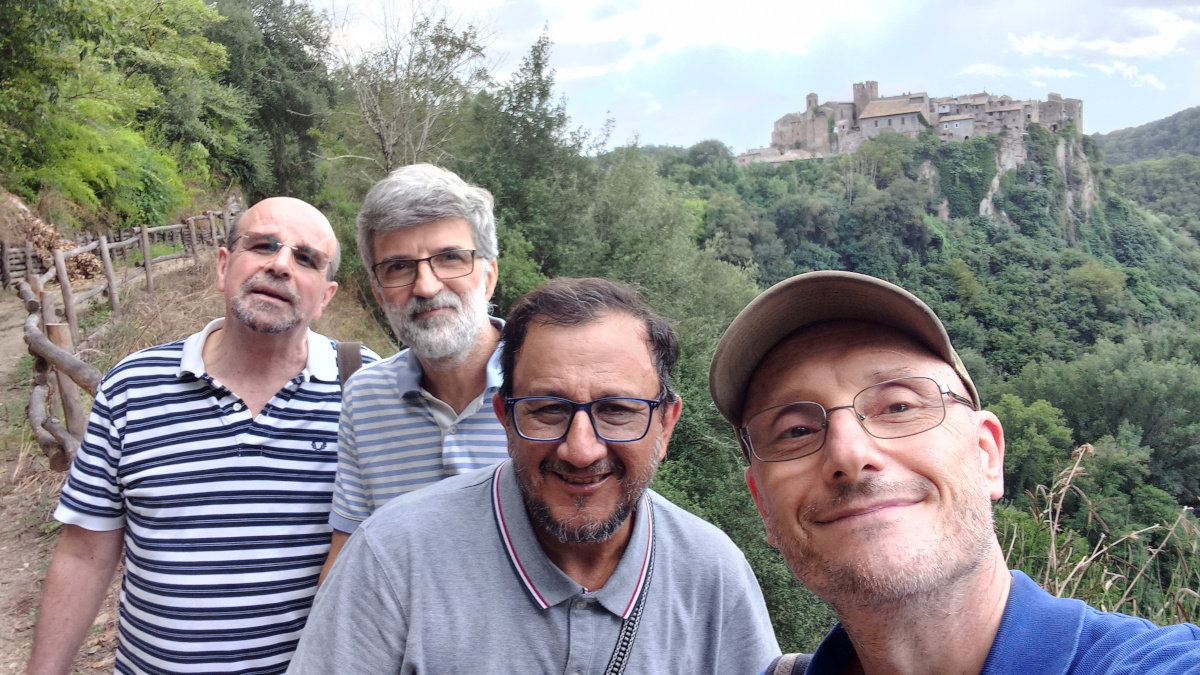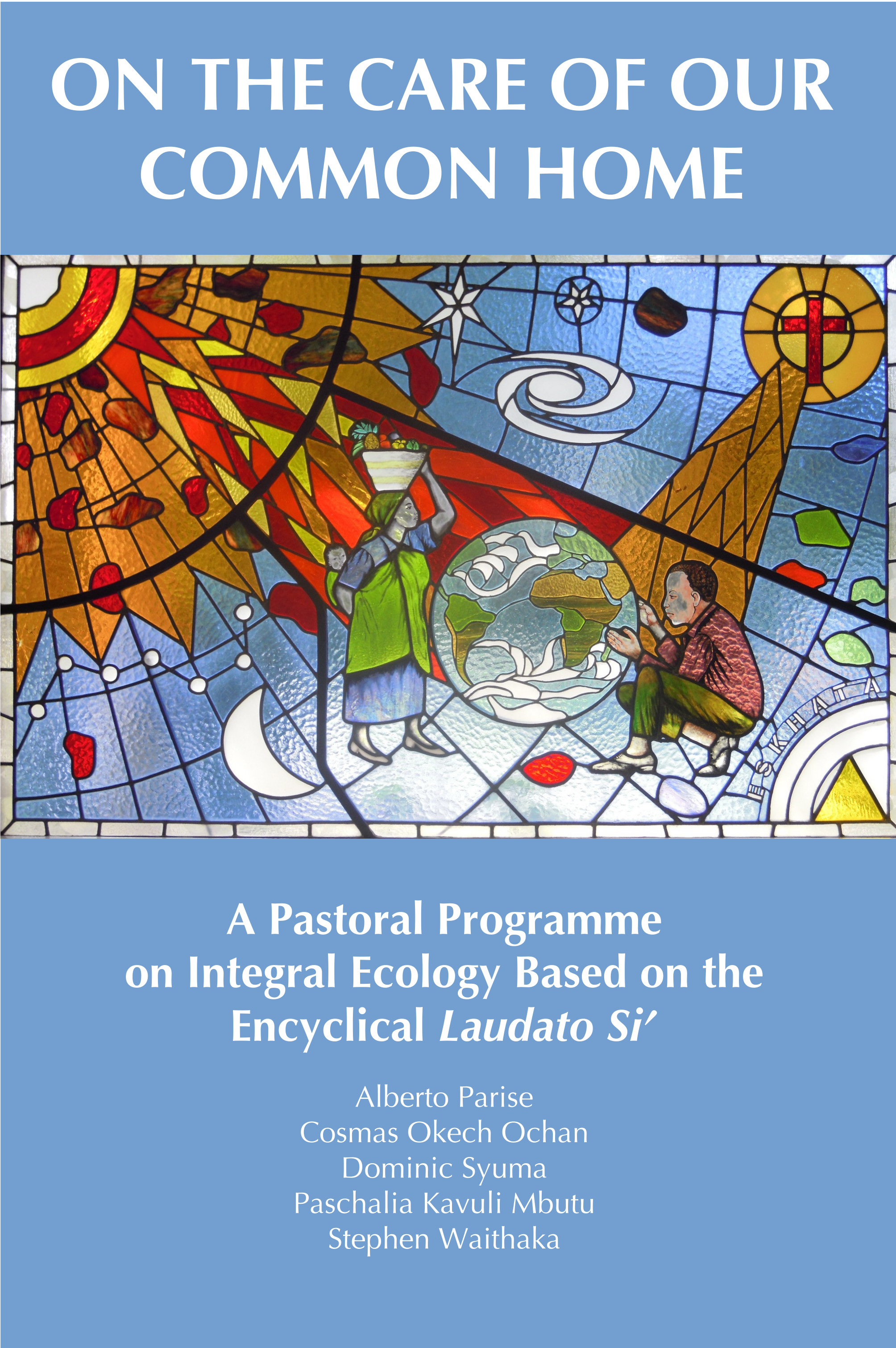Back in 2016, the Continental Secretariat of Mission in APDESAM region met in Pretoria to elaborate a vision of urban ministry according to the Comboni charism. Following the guidelines of the XIX General Chapter, which calls for a requalification of our missionary service along the lines of specific pastoral commitments in relation to Continental priorities, the General Secretariat of Mission is pleased to recall this important manifesto.
GOALS:
- Evangelizing urban cultures
- Holistic human and social transformation, which require:
– to accompany the people to an encounter with Christ
– spaces for healing and regeneration
– a more just society, based on fraternity and communion
STYLE OF MINISTRY
1/ Being present in the time and in the place
- We choose to live physically inside people’s urban reality of exclusion and marginalization, to know and interact with the neighborhood, getting involved and participating in people’s life.
- We make efforts to listen to and understand the people; cultivate awareness of events, trends and dynamics of our time and respond to them in the light of our faith.
- We are present to the people and the environment which is around us. We care for creation and as God’s stewards (Genesis 2)
2/ Promoting inclusive partnerships and solidarity
- Today’s socio-economic systems exclude and kill amid indifference, and all sorts of urban divides (cultural, ethnic, economic, political, religious, etc.) bring violence, oppression and fragmentation.
- We strive to promote – across all divisions – partnerships, collaboration and networking in solidarity with the suffering and excluded.
- We make common cause with the underprivileged, through the practice of:
- accompaniment;
- commitment and faithfulness to the poor;
- compassion;
- equality in relationships;
- facilitating inclusive participation.
3/ Empowerment
- We commit ourselves to building the urban poor’s capacity, especially of the youth and women so that they may exercise their central role in the evangelical transformation of urban realities.
- Such capacities include competence and skills; conviction and self-esteem; critical consciousness of reality and creativity; team work, movement building, research and documentation.
4/ Proclamation of the Gospel in the existential peripheries.
- Whatever we do is meant to proclaim the Good News in the existential urban peripheries, imbued with spirituality, prayer and celebration.
- We believe in the healing power of the Word, touching the human heart, regenerating social relations, opening them up to forgiveness and reconciliation.
- The word of God gives hope to all peoples and encourages us to go forth: “Do not be afraid, I am with you”.
5/ Inculturation of the Gospel
- Aware of the dynamic nature of urban cultures, we commit ourselves to the promotion of the inculturation of the Gospel, of celebrations and liturgy, in communion with the local Church.
- We strive to engage the urban African worldview and facilitate processes of community discernment and development of authentic and incarnated spirituality.
- We promote prayer, liturgy and catechesis that engage concretely the social, political, cultural and religious challenges of the people.
- Aware of the dynamic nature of urban cultures, we commit ourselves to the promotion of the inculturation of the Gospel, of celebrations and liturgy, in communion with the local Church.
- We strive to engage the urban African worldview and facilitate processes of community discernment and development of authentic and incarnated spirituality.
- We promote prayer, liturgy and catechesis that engage concretely the social, political, cultural and religious challenges of the people.
What do the UM Principles above mean in practice in your context?
Inculturation
= Learning of the local languages, cultures and traditions
= Need of stability to learn language, culture, etc. It needs time. The longer one stays in one place, the better it helps
= It should go beyond mere liturgical celebrations
= Inculturation that may touch the style of life, ways to approach situations/problems, and adapt the African urban view of world
Insertion
= Being with the people in the various events of life
= Understanding the people and the culture as you live with them
= Being present in time and place
- Listening to the people, asking them their needs (vs paternalistic way
- To involve people/dialogue
- Get out of “comfort zones”
- Participate in social/political/cultural forms.
= Dialogue with the people. To see and know the needs of the people
Collaboration
= Partnership and collaboration with religious and NGO
= Promoting inclusive partnerships of solidarity
- Know potential partners
- Overcome prejudice of tribe race and gender o potential partners
- Be truly conviced that other partners can do better than us
- Identify which partners can be weaker/poorer and “promote” them
= Collaboration among parishes in outreach
Empowerment
= Laity becomes aware and formed on their responsibilities
= Trust, accept and give space and condition to the laity to fulfill their responsibilities
= Clergy to give way to empowerment
= Empowerment of women and youth to evangelize their fellows
= Empowering the youth in the center and towns to become animator of the WoG
= Allowing them to use their music, celebration, language in liturgy… to make them feel they belong to it
Proclamation of Gospel in the existential peripheries
= Gospel values that address the realities of the utmost need of the existential peripheries
= Ministries of healing. Counseling to the sick, HIV, youth…
= New avenues for sharing the Word of God (bus stations, street, etc.)
Life Style
= Sobriety. Simple life with the people
= Change our rhythm or timetable of life to be present; to adapt
Communication and formation
= Being present in the Pastoral Centers, Seminaries
= Organizing Missionary Congress (JHB)
= Social media for ministry (e.g. homilies can be share)
Renewal of our structures in Urban Ministry
Physical structures
= To pay attention to the places where we are present to face new challenges and bring new ministries (e.g. bus stations, where people move and pass by, etc.)
= Style of housing and sustainable style of living.
New or extended boundaries
= Going beyond parish boundaries in collaboration with other entities.
= Structures of ministry beyond parish boundaries (i.e. Bienvenu Shelter and Yithuba Lami Project in SA)
= Missionary movements. Be outreach minded and concerned with social environment.
= Creative use of existing structures (e.g Way of the Cross contextualized in actual social situation, animated by social/professional groups)
Renewal of mentality
= Change of clerical mentality of priests to be ready to dialogue with other groups… non Catholics
= Relationships of equality/fraternity as alternative to the common practice based on status
= Empowering lay people in urban ministry
= Provincial structures should prioritize activities with the laity
Collaboration
= Collaboration with religious institutes living in the same zone/area to have common apostolates together.
= Presence within social movements
= APDESAM should help in the contextualization of ministry. The initiatives by the APDESAM should help the Provinces to implement them.
Empowerment
= PPC and PFC (Parish Pastoral Councils and Parish Financial Councils) should be more empowered
= Putting the youth at the center
> Integrate them in ministries and leadership
> Youth movement and Whatsapp / FB and events
= Ministries: to address social, cultural, political an ecclesial challenges of the peripheries
Catechesis and celebration
= Catechesis: away from traditional teacher-student approach to be more participatory and engaging life questions of people and the youth
= Celebration (liturgy and others): be more inclusive of the surrounding realities
Methods in Urban Ministry
= Method of Pastoral Cycle
= Method of Inculturation
= Method of Discernment (Ratio Missionis)
= Methods of Lumko (e.g. Bible sharing, social awareness, leadership, etc.)
= Method of dialogue
= Method of Insertion
= Evangelizing as team/community
= Turning Bible verses into songs.
= Walking with the people, visiting communities in their concrete life situations.
= Involving people affected in decision making and planning.
NB. The good follow up is always a big challenge to make it successful.





